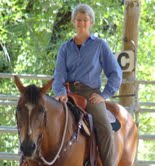Holistic Horsekeeping Newsletter January 2022
Volume 27, Number 1
Are you proactive with your horse’s nutritional needs or do you wait until you have a problem? If you address the functional and supportive nutritional needs for your horse then there is a very good chance you will have much fewer problems in the future.
Functional nutrition includes macro nutrients such as protein, fat and carbohydrate requirements for growth and work. Micronutrients such as vitamins and minerals also fall under functional nutrition. You want to start with the best quality pasture, hay and feed that you can get. Whenever possible get organic, non GMO feeds and hay. GMO hay and grains are often sprayed with herbicides that can damage the bacteria in your horse’s gut.
Hay testing and selection of the right feed based on the work level of your horse is the first step to your horse getting his macro nutritional needs met. To make sure a horse is getting the micronutrients he needs I like to add blue green algae to the diet as an insurance policy. Blue green algae has a wide range of trace minerals, as well as amino acids, chlorophyll and B vitamins. Blue green algae is a whole food and the body is able to use 97% verses the 10 to 20% available from formulated inorganic vitamin/mineral supplements. Blue green algae is also what is considered a super food which helps the body repair DNA.
Supportive nutrition is needed for horses who are growing, breeding, performing or geriatric. Horses in these categories can benefit from probiotics so that they get maximum assimilation of the food they eat. Foods high in antioxidants are also helpful for these horses. Foods with bright colors are high in antioxidants. Mushrooms are also great sources of antioxidants. Immubiome products contain probiotics, colostrum and mushrooms so they are great for supportive nutrition. Blue green algae with wheat sprouts and probiotics contains antioxidants so it can fulfill both functional and supportive nutritional needs.
Musculoskeletal support products are needed for performance horses in addition to functional nutrition, especially if the horse is still growing. There are many products available but I prefer whole food based products such as Joint and Recovery, Strength and Stamina and Lean Muscle. Adequan is not a whole food but it does provide good support for joints when given on a regular basis.
Hemp based products are beneficial for horses who are under added stress. I love Focus for support of the endocannabinoid system. Supporting the endocannabinoid system allows the horse to shift between fight and flight to rest and digest as needed. Micro doses as low and 1/4 to 1/2 ml a day are all that is needed for emotional support.
The Five Element Balance Formulas are a great example of supportive nutrition. These products give the extra nutrients needed for each individual temperament type.
Situational nutrition is needed when specific health problems have developed. Gastric ulcers are so common in horses and many horses could be spared this discomfort if their functional and supportive nutritional needs had been met. Hemp based products help horses handle stress and blue green algae helps the gut lining heal quickly when damaged. Once ulcers have been diagnosed then I like GastroPro plus.
Degenerative arthritis can be addressed with situational nutrition. Many times higher levels of supportive nutritional products are effective. AniMotion is excellent for arthritis that gets better after the horse warms up. Glucosamine based joint supplements work well for arthritis with bony changes. Hemp products, such as Focus, can help the horse with pain and help him respond better to pain relief products when used at the rate of 1 to 2ml a day.
Allergies respond to nutrition. Blue green algae fed year round will help decrease over reaction to insects in the spring. Breathe is a product that helps with skin and respiratory allergies.
These are just a few ways that nutrition is used was the first line of defense against disease and injury. If your horse has a health issue then start with carefully evaluating the functional nutrition status of your horse, then look at supportive products and finally look at situational nutrition. Do all of this before reaching for drugs and your horse will have the best chance at a good outcome.
Develop a Better Relationship with Your Horse

By learning about your horse’s temperament type, you can develop a better relationship with and understanding of your horse. We have lots of resources to help you discover what type your horse is and what the special needs of that type are. You will find lots of information on the Horse Temperament website, including an online course, help from temperament consultants, balancing formulas, and books/audios. Then check out the “5 Element Personality” sections of articles on our blog and the Intro to 5 horse types and temperaments on Holistic Horsekeeping.
++++ Copyright | Getting On and Off the List ++++
Unless otherwise attributed, all material is written and edited by Madalyn Ward, DVM. Copyright (c) 2021 HolisticHorsekeeping.com and Madalyn Ward, DVM. All rights reserved.
If you like the material in this newsletter please let your friends know about it. You may reprint material in other electronic or print publications provided the above copyright notice and a link to http://www.holistichorsekeeping.com is included in the credits.
When you forward this material, please send the entire newsletter. Thanks!
Please also enjoy all of Dr. Ward’s web resources:
http://www.holistichorsekeeping.com
http://www.horsetemperament.com
http://blog.horseharmony.com
https://www.facebook.com/HolisticHorsekeeping
https://www.facebook.com/HorseHarmony
Twitter: madalynward